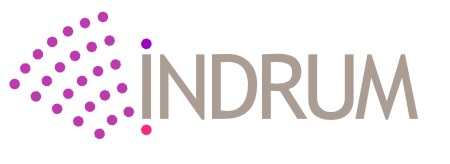|
|
|
PanelPlenary Panel: Mathematics and other disciplines: epistemological issues and their impact on teaching practices at tertiary level Frank Feudel (Humboldt-Universität zu Berlin, Germany) Panel slides F_Feudel Felix Ho (Uppsala University, Sweden) Panel_slides_F_Ho Ricardo Karam (University of Copenhagen, Denmark) Panel_slides_R_Karam Noemí Ruiz Munzón (Escola Universitària Salesiana de Sarrià, Barcelona, Spain) Panel_Slides_N_Ruiz-Muzon Chair: Laura Branchetti (University of Milan “La Statale”, Italy) Panel_slides_L_Branchetti
Panel members will present a variety of issues that emerge when considering the interplay between mathematics and other disciplines in a didactical context, with particular attention to epistemological issues and their concrete impact on teaching at the tertiary level. The discussion will start from a well-known challenge in university mathematics education: the perception that mathematics courses at university are of little use for succeeding in subsequent disciplinary courses, as well as in the practice of professional fields. The main assumption shared by all the speakers of the panel is that professionals in different fields have their own aims and values, necessitating a departure from an “applicationist” and instrumental approach to mathematics courses—an approach predicated on the “illusion of prerequisites”, viewing mathematics as merely a toolbox. The design of interdisciplinary teaching and learning activities, as well as disciplinary teaching when aimed at better integration with others subjects, should incorporate multiple perspectives in a respectful and inclusive environment. This includes several aspects of the disciplines such as reasoning, modelling, and the relationship between the disciplinary knowledge and societal and professional issues from external sources. The panelists, who have diverse academic backgrounds and teaching and research experiences, will explore the challenge of rethinking the relationship between mathematics and other disciplines and professional fields from different and original perspectives. Three of them will share their experiences as “boundary people”, reflecting on the mathematical and interdisciplinary aspects of modelling in fields like chemistry, economics, and physics. They will discuss the nature and relevance of the so-called extra-mathematical knowledge involved in such processes, and the new kinds of mathematical knowledge and practices that should be considered beyond the traditional conception of mathematical prerequisites for non-mathematicians at the tertiary level. The fourth speaker will present results from several implementations of so-called study and research paths focusing on mathematical modelling, along with reflections on institutional barriers that might constrain the application of modelling in university courses. The panel will conclude with a discussion of the common issues identified as relevant and worthwhile by all members in order to make the inclusion of interdisciplinarity in teaching feasible and sustainable at the university level. Possible concrete examples of interdisciplinary design principles and ways to deal with institutional constraints will be proposed, figuring out who might take responsibility for such a process of didactical innovation at the epistemological and institutional level. |


